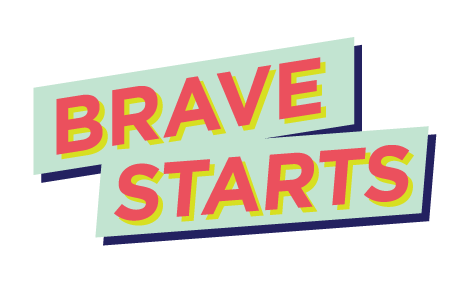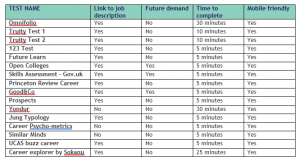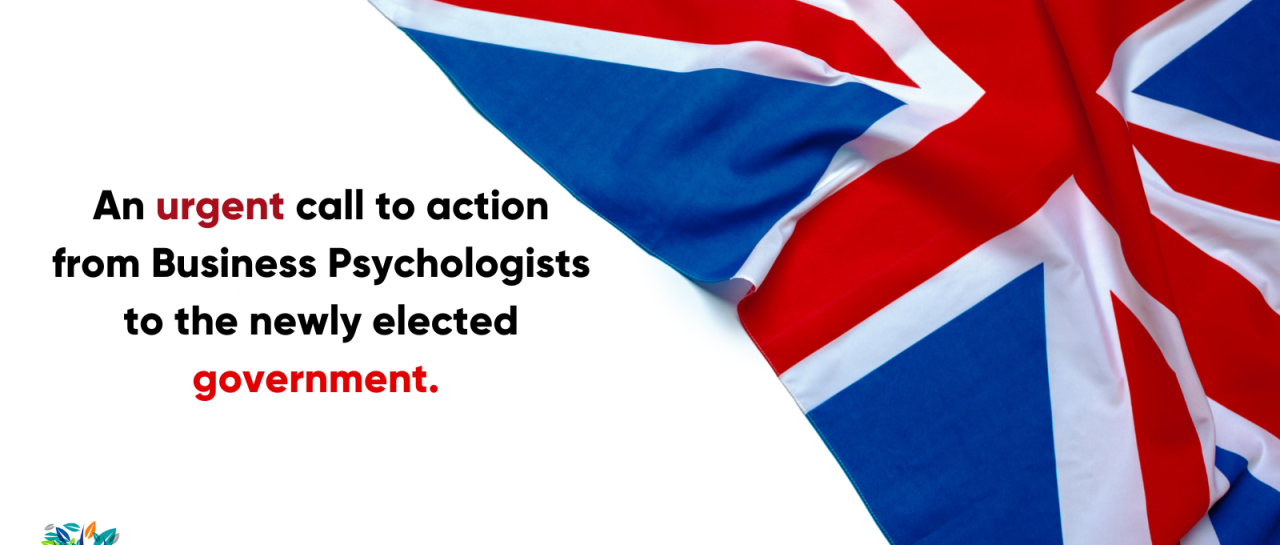Authored by Certified Business Psychologist Laura Howard. Certified Business Psychologist, Laura Howard, reflects on the webinar she recently delivered to ABP members. Below she outlines the main findings of her published research uncovering systematic barriers women face when being authentic as leaders. Importantly, she gives…

Career aptitude tests are popular. A quick Google search of “career tests” and you get overwhelmed by the results which appear. You can waste a huge amount of time and energy taking these tests, some of which are very disappointing. The aim of this review is to shortcut you to the best of what is currently and freely available.
What prompted this review?
We’re all living longer – so we will have to work for longer. We keep hearing, there are ‘no jobs for life’ – but very few organisations act like they understand this. There is no help/guidance or support for people who might need or want to consider a career change. The burden of having to navigate through what roles might better suit the changing needs of people as they age falls squarely on the individual.
Brave Starts, is a non-profit organisation, focused on helping people over-50 explore and change careers. We conducted a survey of over 1000 people over 50 asking what activities they would value undertaking as part of a career change process. One of the items was ‘taking career-based psychometrics’. Out of 8 options, this was down the lower end of the scale (our audience are smart and recognise these tests are not that valuable), but as this still represented over 300 people. There is (arguably speaking) little harm in taking a test. Many find them interesting, so we felt a review was needed.
Before we get into the meat of things, we want to first point out, not one of these tests is designed for the career changer. You will need to get over the frustration of the language aimed at the younger, inexperienced end of the age spectrum.
We reviewed each test on these criteria:
- Link to job description? If a test is to give you a recommended ‘job’ we feel it’s helpful to have some facility to learn more about it.
- Future demand? We liked it when a provider gave some indication of the popularity/level of possible future demand for this role. If the test links you to job boards or an indicator of how future proof that job is we wanted to share this with a ‘yes’.
- Time to complete – Self-explanatory. Not many people have hours to spare…
- Mobile friendly – Most people take tests on a phone, so we looked at mobile compatibility.

Assessing your personality is the cornerstone of how these tests operate. The premise being, if you work in a role and environment which doesn’t suit how you are naturally ‘orientated’ then you find that disproportionately exhausting and challenging. For example, if a person really dislikes following strict rules and procedures, then working in an extremely strict hierarchical environment would not suit their personality style or preferences.
Most of the tests used Myers Briggs Type Indicator (MBTI) to assess personality. MBTI is simple and minimalistic – it does literally put you into a ‘box’ or a ‘type’. The major problem with this however is personality constructs are measured on a spectrum. Think of height – some people are very short – some very tall, but most fall in the middle. Personality is the same – you get some extreme ‘introverts’ or ‘extroverts’ – but most people fall in the middle*. Placing people into an either/or option – when in fact most fall in the middle, leads us to the opinion that MBTI as the basis of a personality test to explore career options is too reductive in nature and gives people a false impression of how personality functions (If interested a fuller review is here or a more short and scathing review here)
Taking each in turn…
Omnifolio Assesses personality alongside task interest, motivation, and self-rated ability. This gives a bigger picture of where your skills lie. However, rating scales are ambiguous and the user journey is frustrating. It takes a long time to complete and the results do not ‘feel’ like a match.
Truity 1 uses Holland code, or the RIASEC** system, as well as the Big 5 personality models to generate the questions and give an analysis. The 2nd personality test form Truity uses Holland code as well as Myers Briggs. They both give you career ideas and some descriptions of them, but no access to job boards. They also both tell you what your strengths and skills lie. These tests have been positively reviewed by other users.
The career aptitude test by 123 Test follows the Holland model. In this test, users had to pick which image they liked or didn’t like. The images were made up of people doing a task or a role. The images were simple and easy to understand. Wording can feel exclusionary – the use of images help bizarrely helps to reduce ambiguity and make options clearer. Note – 123 Test also have lots of other free psychometrics from numerical reasoning, to personality tests. It’s a great resource to practise some of these skills/get insight to your own abilities.
Future Learn also explores your interests, what you like and what skills you have. The career options shown are matched to your own assessment of your personality, strengths, and abilities and each role also gives you access to free Future Learn courses in that area – a great way for you to learn more about that career field without investing a lot of money and time. Yes, they have asked us to link to their site, but will they link back or even reply? Hmmm.
Open Colleges measures personality only using MBTI, and then shows your career types – which for reasons we have mentioned above is likely to be unreliable. This is an Australian test, so the jobs it describes and jobs boards you are linked to are based in Australia (and immigration there is tricky!!)
The National Career Service (NCS) skill assessment is a great career test. The questions are easy to understand, the rating system is logical and unambiguous. Once users have completed the test, they are shown a few career options – they then have the opportunity to answer more questions to further funnel down career areas (sometimes referred to as an ‘adaptive’ or ‘dynamic’ test). Users get a link to the careers board to then search careers in their chosen area giving you the opportunity learn more about the roles and require in terms of training/qualifications. A huge advantage of the NCS is the free number to call to speak to a careers advisor if you would like some help.
Princeton Review Career quiz measures personal interests and usual style. The questions start with “I would rather be…” There are only 24 questions which is unlikely to produce a robust assessment.
Good&Co adds fun to their personality test through the questions they ask. Such as, “if aliens came to earth I would …” Whilst fun – and presumably developed to appeal to young students, the link to the jobs board doesn’t seem to be based on your personality results. Caution advised.
Prospects Career Test is solely aimed at the younger audience. We admire the honesty of their approach in that if you were in education prior to 2002, you can not progress onto the test – unless you lie! Flandra (in our team) is ‘younger’ so she took the test. It does indicate which careers you are suited to, based on your strengths and your self assessment of your ability – so it tries not to rely on personality alone. Still – for obvious reasons, we can’t recommend this test to the career changer.
Yondur has a different business model to most: recruiters pay to access your data if you agree to share it. Users can complete a series of tasks which measures a range of abilities: mental arithmetic skills, spelling, processing speed, emotional development, (to name a few), alongside personality. All tasks were gamed based which makes the test easy and fun to do – so you can pardon the 30 minutes it takes. Yondur is the hands down ‘winner’ in that assessing your ‘desires’ alongside your abilities gives you a better idea of your strengths. It does not produce a list of career pathways for you – but it does have the bonus that maybe – just maybe a recruiter will see your results and come knocking.
The Jung Typology Test has a poorly written rating scale: “YES, yes, uncertain, no, NO.” Confused? We are! This is also an MBTI personality test with a range of career options shown at the end to suit your needs. We would not recommend this test.
Career Psychometrics is really just a sales tool to hook you into paying £45 to ‘buy’ your personality report you’ve just completed. It isn’t a long test and we like the ‘ipsative’ format (ie you are provided with a list of options forcing you to make a choice between what is most/least like you) but the value of what you get in return for your time/data isn’t worth it in our book.
Similar Minds Personality Career Test, assesses personality. A list of career options is given, which seem to bear no reflection to the person taking the test. A complete waste of time.
Career Explorer by Sokanu, This starts off well – it’s logical, it asks questions related to work styles and preferences. It then asks for what jobs you’ve already done which feels like nod to the career changer. In reality, this section is all about mining data from you about what skills are needed for those roles. There is then a very long personality section which feels very repetitive. We sort of lost the will to live going through it all and ‘skipped’ many questions. To get any in depth results, your own data is hidden behind a membership fee which for a career changer feels very low value as membership is geared to supporting US university students.
Making a personality test ‘fun’ is approach of the UCAS Buzz Career Test. Instead of using the MBTI codes, the Buzz test generates images – a fun and memorable way to know your personality. You might struggle with the language ‘what kind of boyfriend or girlfriend will you be? What celebrities are like you’, but if you want to explore taking an MBTI test, this is as close to quick and free as you’ll get.
Conclusion
Out of all the tests reviewed, our two favourites are Yondur and the National Careers Service.
Overall, career tests really are not designed to help the career changer – or ageing worker. Very few consider your current skill set, experience or the barriers or difficulties some people face. In our research for example, we find many people are not prepared to undertake further years of academic study. It is never because people aren’t open minded to learning – it is mainly a financial barrier. 3 years of study isn’t just the cost – it’s the opportunity cost of income not earned that many simply can’t afford. A simple yes/no response to questions like ‘would you be open to further academic study’ would eliminate all roles which might require a 7 year degree and training period.
Society is ageing. There are no jobs for life and with Covid, it’s likely those over 50 who will bear the brunt of redundancies. There are over 34,000 different types of jobs – the temptation to use a test to refine options has appeal. Considering the older worker has a far better idea of what they do and don’t like and this is based on actual experience – the opportunity to create something really useful is there. Our plea to the psychometrics market? Do a better job!!
*68% within one Standard deviation from the mean in a normal distribution.
**RAISEC: Realistic, Investigative, Artistic, Social, Enterprising, Conventional (also referred to as Holland Code)
Authors:
Flandra Abdullahu: Researcher, Brave Starts
Lucy Standing: Co-Founder, Brave Starts
References:
Stein, R., & Swan, A. (2019). Evaluating the validity of Myers‐Briggs Type Indicator theory: A teaching tool and window into intuitive psychology. Social And Personality Psychology Compass, 13(2). doi: 10.1111/spc3.12434
13 Reasons Why The Myers-Briggs Test Is Absolute Nonsense. (2015). From https://thoughtcatalog.com/lorenzo-jensen-iii/2015/05/13-reasons-why-the-myers-briggs-test-is-absolute-nonsense/



